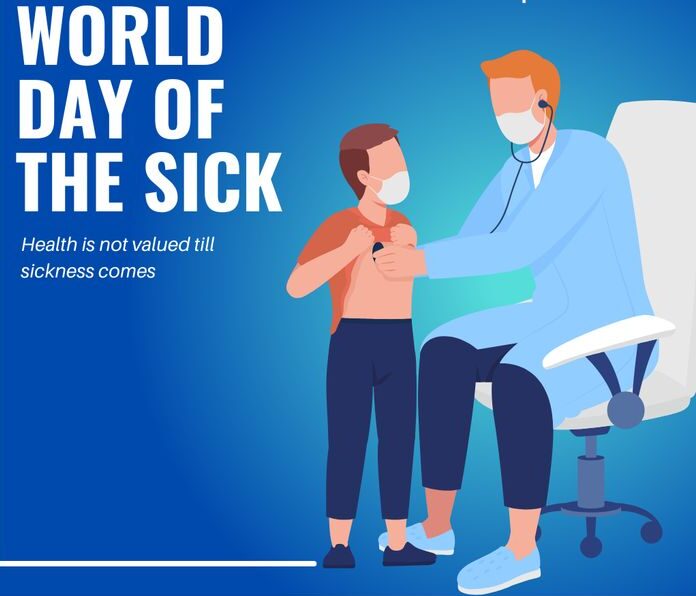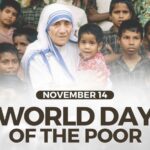World Day of the Sick 2025: A Day of Compassion, Care, and Global Solidarity
World Day of the Sick is a special observance dedicated to raising awareness about the challenges faced by individuals who are suffering from illnesses, and it offers a chance for the global community to unite in compassion and care. Established by the Catholic Church, this day serves as a reminder to not only provide healthcare support to the sick but also to highlight the importance of empathy, emotional care, and spiritual healing in the recovery process.
In this article, we’ll explore the history and significance of World Day of the Sick, its observance, the role it plays in promoting care and compassion, and how it impacts society in a positive and lasting way.
History of World Day of the Sick
World Day of the Sick was instituted by Pope John Paul II in 1992 to commemorate the Feast of Our Lady of Lourdes, which falls on February 11th each year. The day was established to highlight the dignity and needs of the sick and to remind us all of the importance of offering care and support to those who are ill.
The Catholic Church chose February 11th because it coincides with the anniversary of the Lourdes apparitions, where the Virgin Mary appeared to Saint Bernadette in 1858 in Lourdes, France, a site that is now a major pilgrimage destination for those seeking healing. As a result, the day is also marked by pilgrimages to Lourdes, where many seek not only physical healing but spiritual solace.
While the observance began with a focus on the sick from a Catholic perspective, it has expanded globally, inviting people of all faiths and backgrounds to reflect on the importance of compassionate care, medical advancements, and community support.
The Significance of World Day of the Sick
World Day of the Sick holds immense significance for both the individual and the global community. Here’s why this day is so meaningful:
- Promotes Compassionate Care: One of the core messages of World Day of the Sick is that people who are ill deserve not only medical treatment but also emotional and spiritual support. The day serves as a reminder to care for the sick with love, empathy, and understanding. This involves listening, providing comfort, and addressing the mental health needs of those suffering.
- Raises Awareness About Healthcare Accessibility: The observance brings attention to the disparities in healthcare access that exist across the world. Many individuals in impoverished or rural areas face barriers in receiving the medical care they need. World Day of the Sick calls for global efforts to improve healthcare access for all, particularly for vulnerable populations.
- Encourages Volunteerism and Support: On this day, individuals and organizations are encouraged to get involved in supporting the sick. Whether through volunteering at hospitals, donating to medical charities, or providing comfort to those in need, World Day of the Sick is a day to engage in acts of kindness and service.
- Highlighting the Importance of Holistic Healing: World Day of the Sick emphasizes that healing is not just about treating physical symptoms but also addressing emotional, psychological, and spiritual needs. Holistic healing, which includes the mind, body, and spirit, is crucial for a person’s overall well-being and recovery.
- Commemorating the Ill and the Caregivers: World Day of the Sick also acknowledges the tireless work of healthcare providers, caregivers, and volunteers who dedicate their lives to caring for those in need. The day serves as an opportunity to thank those who work in healthcare, offering them recognition and appreciation for their service.
Observing World Day of the Sick
World Day of the Sick is observed in various ways around the world. The main observances typically include religious services, prayers, and acts of charity. Here are some common ways the day is marked:
- Religious Services and Prayers: In many countries, religious institutions organize special masses or services to pray for the sick and those who care for them. These prayers are meant to bring comfort to those who are ill and encourage people to reflect on the role of faith in healing.
- Medical Outreach and Assistance: Hospitals, clinics, and health organizations often use World Day of the Sick as an opportunity to offer free health screenings, medical consultations, or support to underserved communities. In areas with limited access to healthcare, this day becomes a platform for making healthcare services more accessible to those in need.
- Public Awareness Campaigns: Many organizations and healthcare providers organize campaigns on this day to raise awareness about specific health issues such as cancer, heart disease, mental health, and chronic conditions. These campaigns often include educational materials, health talks, and the promotion of preventive measures.
- Charity and Volunteering Initiatives: Volunteering plays a central role in observing World Day of the Sick. People around the world participate by visiting hospitals, helping out in nursing homes, donating supplies, and offering emotional support to patients. Acts of kindness and compassion on this day have the power to bring light to those who are suffering.
- Pilgrimages to Lourdes: For many Catholics, pilgrimage to Lourdes is an integral part of World Day of the Sick observance. Lourdes, a city in France where the Virgin Mary is said to have appeared, attracts thousands of pilgrims each year. It is considered a sacred place of healing for those with physical and spiritual ailments.
Key Facts About World Day of the Sick
- Founded by Pope John Paul II: World Day of the Sick was established by Pope John Paul II in 1992 to raise awareness about the needs of the sick and to inspire acts of compassion and solidarity.
- Observed on February 11th: The observance falls on February 11th each year, coinciding with the Feast of Our Lady of Lourdes, a day of prayer and reflection for those seeking healing.
- International Participation: While rooted in Catholic tradition, World Day of the Sick has expanded to include people of all faiths and backgrounds. It is observed in various ways around the world, from religious services to community outreach.
- Focus on Holistic Health: The observance highlights the importance of addressing not only the physical health of individuals but also their emotional, mental, and spiritual well-being.
- Encouraging Healthcare Accessibility: World Day of the Sick is a call to action for improving access to healthcare and ensuring that everyone, regardless of their background or income, has the opportunity to receive necessary medical care.
FAQs About World Day of the Sick
- What is the main message of World Day of the Sick?
- The main message is the importance of compassionate care, recognizing the dignity of the sick, and providing not only medical treatment but also emotional and spiritual support.
- Why is World Day of the Sick observed?
- It is observed to raise awareness about the challenges faced by the sick, improve healthcare access, and encourage people to engage in acts of kindness and service to those in need.
- How can I participate in World Day of the Sick?
- You can participate by volunteering at hospitals, donating to medical charities, praying for the sick, and spreading awareness about health issues. Simple acts of kindness can also make a big difference.
- How does World Day of the Sick relate to Lourdes?
- The observance is linked to the Feast of Our Lady of Lourdes, a day of pilgrimage for those seeking healing at the Lourdes shrine, where people from all over the world come to pray for physical and spiritual healing.
- What is the significance of holistic healing?
- Holistic healing emphasizes the need to address not just physical ailments but also emotional, mental, and spiritual well-being. It promotes a comprehensive approach to care that can enhance recovery and improve quality of life.
Conclusion
World Day of the Sick is a poignant reminder that illness affects not only the body but the heart and spirit as well. By observing this day, we renew our commitment to providing holistic care, improving healthcare access, and demonstrating compassion for the sick. It’s a time to reflect on the importance of empathy, volunteerism, and solidarity in supporting those who are suffering, as well as recognizing the vital role healthcare professionals play in healing and recovery. Whether through prayer, charity, or advocacy, World Day of the Sick invites each of us to contribute to a compassionate and caring world.










